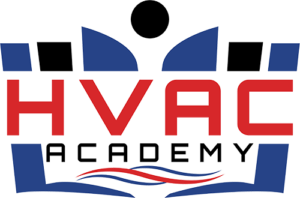HVAC-certified and trained contractors love to fix problems, but they also want their clients to be well-informed. That’s why they created this blog post—to share five things that every homeowner should know about their HVAC system.
Ask about maintenance history. Also, ask about any warranties or service plans that may be active.
1. Know What You Want
HVAC systems are complex and the number of factors that go into their operation makes it difficult for homeowners to fully understand their system. Having even a basic level of understanding can help homeowners have more productive conversations with their HVAC/R professionals and may result in better energy efficiency and saved costs.
Homeowners should take the time to verify their HVAC contractor’s credentials and insurance schemes, which can cushion them from paying out-of-pocket health expenses or compensation for work-related injuries. For example, some states require HVAC contractors to have a license and provide proof of liability insurance and workers’ compensation.
It is also important for homeowners to consider how complicated and labor-intensive their HVAC system is. For instance, a larger house with multiple units and complicated ductwork will have a longer inspection than a single-family dwelling, which can affect the price of the service. Some companies offer different options for pricing, including a basic inspection and a tune-up, which can help reduce overall costs. A little bit of research online or through local home improvement businesses can help homeowners compare prices and services.
2. Know What You Can Afford
Unlike other industries that require more education or training to obtain an entry-level position, starting your own HVAC business is relatively simple. After meeting the state and local licensing requirements, you need to establish a permanent business location, obtain commercial general insurance and workers’ compensation insurance, buy an HVAC bond, and open a bank account in your company name with a Federal Employer Identification Number (FEIN).
If you want to succeed in the field, you also need good people skills. This is because the job entails helping people in need of cleaner and healthier air. In addition, you will need to communicate with clients effectively and explain technical data in a way that is easy for them to understand.
You should also join the American Mechanical Contractors Association (AMCA), which provides education, legislative protection, and standards for businesses in the air conditioning industry. This will help you stay on top of the latest advancements in the field and improve your reputation among peers. In turn, this will help you keep your clients happy and satisfied.
3. Know What to Expect
A HVAC-R technician’s job description involves performing maintenance, repairs, and installation services on heating, ventilating, and air conditioning systems. The profession is highly regulated and requires a license in many states. HVAC-R technicians may also be responsible for requisitioning equipment, tools, and replacement parts.
Aspiring technicians can obtain their training through vocational schools or apprenticeship programs. The latter option can take longer to complete, but it is a hands-on way to gain experience and learn the trade.
When starting a business, it is important to have a solid marketing plan and understand your market. It is also crucial to develop a financial analysis and budget, which will help you determine how much it will cost to launch your company and what operating costs will be each month.
You will want to include a break-even analysis in your financial plan, which subtracts your costs from your revenues over a period of time – typically a quarter or a year. A breakeven analysis is helpful for determining when your business will start making a profit so you can know when to expect to pay off any loans or credit you took out to fund your company.
4. Know What to Expect From the Technician
A skilled HVAC technician can make all the difference in your home or business comfort. They provide valuable preventative maintenance to keep your systems running smoothly and efficiently throughout the year. Additionally, they can help you conserve energy by promoting efficient practices and environmentally conscious equipment.
Their duties include repairing, installing, and adjusting heating, ventilation, and air conditioning (HVAC-R) systems, inspecting equipment maintenance risks, assessing mechanical and electrical faults, preparing detailed repair estimates, and carrying out warranty services. They must also have excellent customer service skills, good time-management abilities, and be able to keep accurate records of all work performed.
They must be willing to climb ladders, crawl into tight spaces, work outdoors and in confined areas like attics and basements, as well as travel to different sites. The physical demands of the job may be high but it is a rewarding career, especially when you see your work improve the quality of someone’s life.
5. Know What to Expect From the Company
Many HVAC-R technicians enjoy the sense of accomplishment they feel when they arrive at a home and see the results of their labor—whether it’s getting an air conditioning unit running again after hours in hundred-degree heat or replacing an old, energy-inefficient furnace with a new, high-efficiency system. They also like that they’re always learning—the field of heating, ventilation, and air conditioning is constantly changing, and technicians must keep up to date on the latest technology, systems, and methods to best serve their customers.
Unlike some professions, job security is a major draw for HVAC-R professionals. Those who complete accredited trade school programs or apprenticeships can expect to find employment well into the future. The same is true of those who earn EPA certifications that signify their expertise in specific types of equipment or who recycle refrigerants (which must be done by law). If you are looking for an exciting career with great pay, consider becoming an HVAC technician. You’ll be in the workforce in as little as a year, and you’ll have a skill that will benefit your entire life.






Leave A Comment